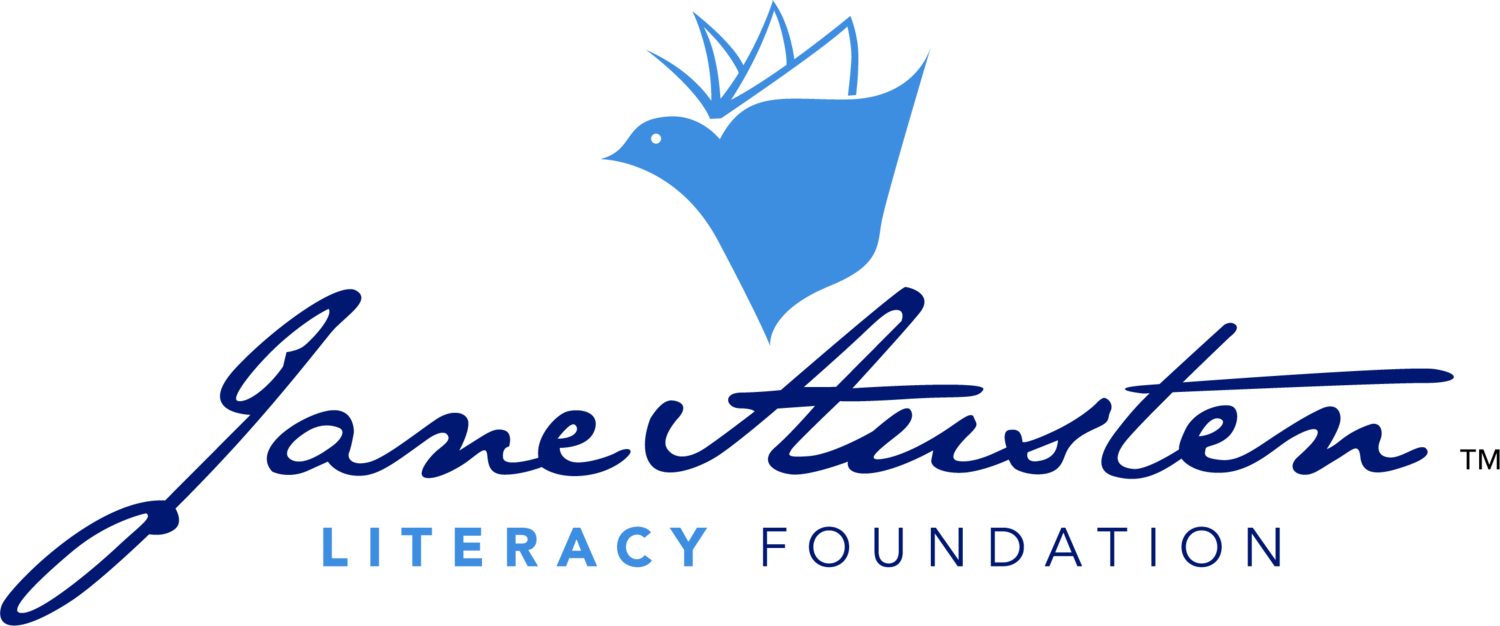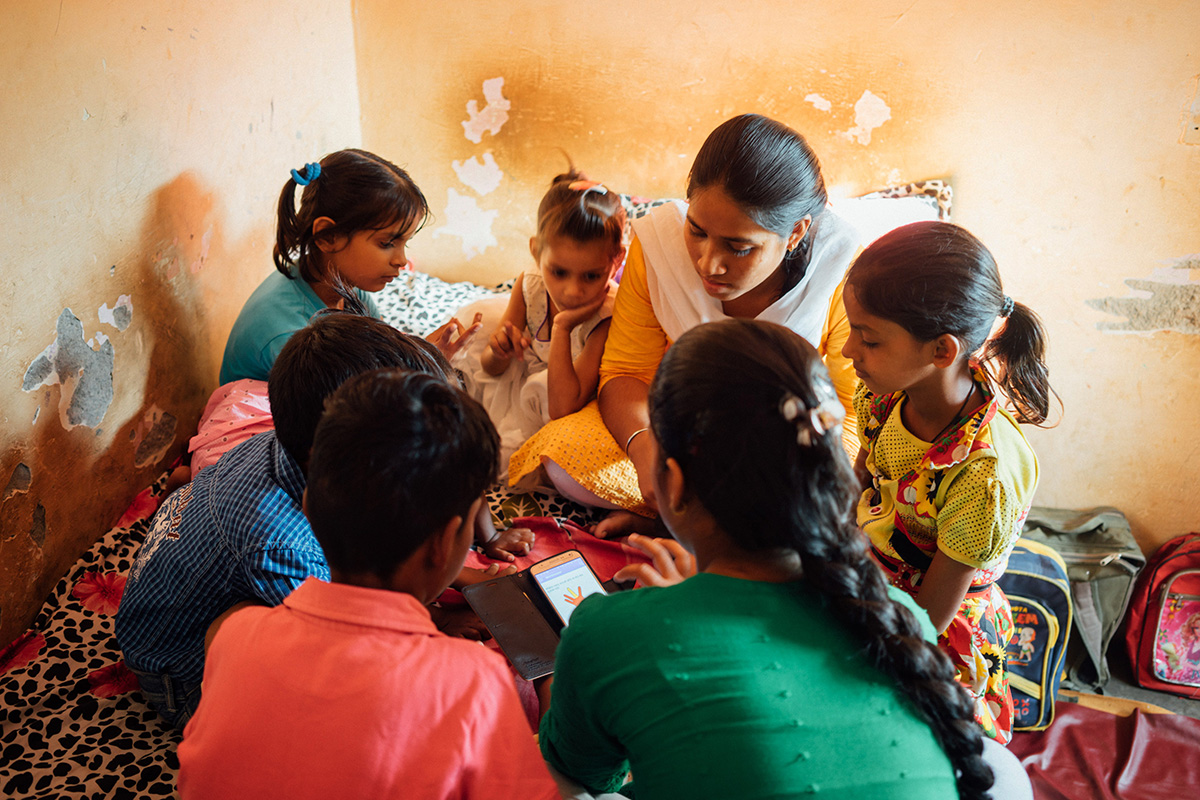The Jane Austen Literacy Foundation increases literacy rates by supporting literacy projects in developing communities.
Why we fund e-technology literacy programs: The experience of reading a physical book is one that many of us cherish, however technology increases a child's opportunity for learning and literacy. Providing a school with e-readers and an e-library, for example, delivers a cost effective in-class teaching tool (as all the children can use the same books at the same time), as well as providing access to a wide range of reading materials and text books. Providing a child in a remote community with an e-reader provides access to a much broader range of literature than donating physical books.
How literacy resources are delivered to the communities that need them: Resources funded by the Jane Austen Literacy Foundation are delivered by our partner charities - expert, capable and reputable not for profit organisations with similar missions and values - as this is far more cost effective than establishing duplicate infrastructures. Run entirely by volunteers, we ensure that your donation to the Jane Austen Literacy Foundation is not spent on large operating costs and, as a result, 100% of the money you donate will be spent on literacy programs for developing communities.
Current fundraising appeals:
We are currently raising funds to enable five public daycare centers, called Anganwadi, in Delhi, to participate in the Worldreader Read to Kids programme, supporting early-children literacy development and school readiness in India’s poorest communities and to provide e-readers and a larger e-library for remote Indigenous children in Australia participating in the Indigenous Reading Project. See below for more details. When you make a donation you will be asked which of these projects you would like your donation to support.
Early-Children Literacy Development in India:
India is a country that Jane would have known of. Her naval brother Francis was away at sea, with India and China as his far destinations, when Jane moved into Chawton Cottage in 1809. For our next Literacy Libraries project, we are raising money to allow five public daycare centers, called Anganwadi, in Delhi, to participate in the Worldreader Read to Kids programme.
Why Worldreader Read to Kids India?
We’ve studied the results, and we find the Read to Kids India program to be a proven, scalable, cost-efficient methodology for supporting early-children literacy development and school readiness in India’s poorest communities. We are convinced that Read to Kids India will prove invaluable in helping its recipient children and families break out of the cycle of poverty, once and for all.
In a programme trial in 2018/19, Read to Kids resources produced the following tangible outcomes in the newly “storified” 5 pilot Anganwadi classrooms:
Increased teacher confidence
Increased quality teaching-learning interactions on a daily basis
Increased student engagement and participation
Increased vocabulary development
Reduced student absenteeism
Increased enrollments as word of positive outcomes spread, especially amongst mothers, leading to
Enhanced community outreach with parents and caregivers who also benefited from a better understanding of the importance of storytelling and reading at home
Read to Kids India Expansion
Thrilled with the results of the Read to Kids pilot program, India’s Department of Woman and Child Development requested Worldreader India, along with implementation partner Society for All Round Development, to expand the Read to Kids India program into 30 of the most impoverished and underserved Anganwadi in Delhi State.
The Jane Austen Literacy Foundation aims to contribute to this expansion.
How You Can Help
For US$15,000 the Jane Austen Literacy Foundation and Worldreader can launch Read to Kids in five new Anganwadi centers offering:
Life-long capacity building for facility teachers
Effective outreach and skill-building to community families
Teaching assets sufficient to serve the entire Anganwadi population, including tools for story-based teaching such as:
Reading tablets that do not require wifi and boast a built-in measurement app that captures data on learning outcomes
Ambience Kits to create learning-conducive environments
A storybook collection of children’s books offered by local, national and international publishers in Hindi and English
Age-appropriate learning resources developed specifically for the Read to Kids India program recipients
Lesson plans, teaching guides and activity sheets
A projector to enable group teaching and learning
Joint monitoring to ensure the long-term sustainability through successful skills transfer to Anganwadi facilitation staff in preparation for program hand-off
Make a donation to the Jane Austen Literacy Foundation today and change the life outcomes of children from the most impoverished and underserved communities in Dehli, India.
For more information about Worldreader, click here
Photographs of Read to Kids in India courtesy of Worldreader
Remote Indigenous children in Australia:
Literacy rates among Australia’s indigenous population are considerably lower than their non-indigenous peers (only 31% of remote indigenous children reach national minimum standards for reading) and access to reading materials can be an issue to children living in remote communities. The Jane Austen Literacy Foundation works in partnership with the Indigenous Reading Project (IRP) to provide e-readers and access to an e-library to children who need help and want to work at their literacy skills. IRP’s ground-breaking program is proven to improve literacy rates among this group.
Founded in 2012, IRP’s work and values are a perfect fit for the Jane Austen Literacy Foundation – both organisations are working to improve literacy rates using technology and both spend 100% of donations received on funding literacy resources and programs.
Here’s how the IRP program works:
The program focuses on children who are performing poorly but are motivated to improve. IRP test them and offer them a place in the program with the incentive of owning a tablet for improved reading ability.
IRP loan students a tablet and give them access to the IRP cloud library to browse through and borrow e-books that interest them.
After 12 weeks, IRP test students again. IRP also collect feedback from teachers, parents and the students themselves.
IRP reward effort and achievement. If the student’s test results show significant, measurable improvement and feedback is positive, IRP give the student the tablet to keep.
If the student’s test results are unchanged or lower from the baseline test and feedback is negative then the tablet is returned to IRP. IRP then offer the tablet to another student.
A select number of very successful students will be offered a place in the IRP Reading for Life (RFL) program. This will provide them with ongoing support and access to IRP reading resources through their school life.
The Jane Austen Literacy Foundation's first donation of AU$2,000 was used to double the size of the IRP e-library with the purchase of 170 new titles. We are now raising AU$2,000 to support ten children with e-readers and the IRP program.
According to Dan Billing, Director of IRP:
"This support could not have come at a better time for us. Last year we had a very high demand for our e-books with a 48% increase in borrowings. It was a big problem for our students as we’d already used up our budget! This meant that there were times when our kids couldn’t borrow the books that they wanted to read. We now have over 170 new titles in our collection. This will ease demand and give our students an immediate benefit. Thank you to everyone at the Jane Austen Literacy Foundation, this has made a real difference to these children and their literacy learning"
Thank you!
For more information about the Indigenous Reading Project, click here
Photographs copyright Indigenous Reading Project







